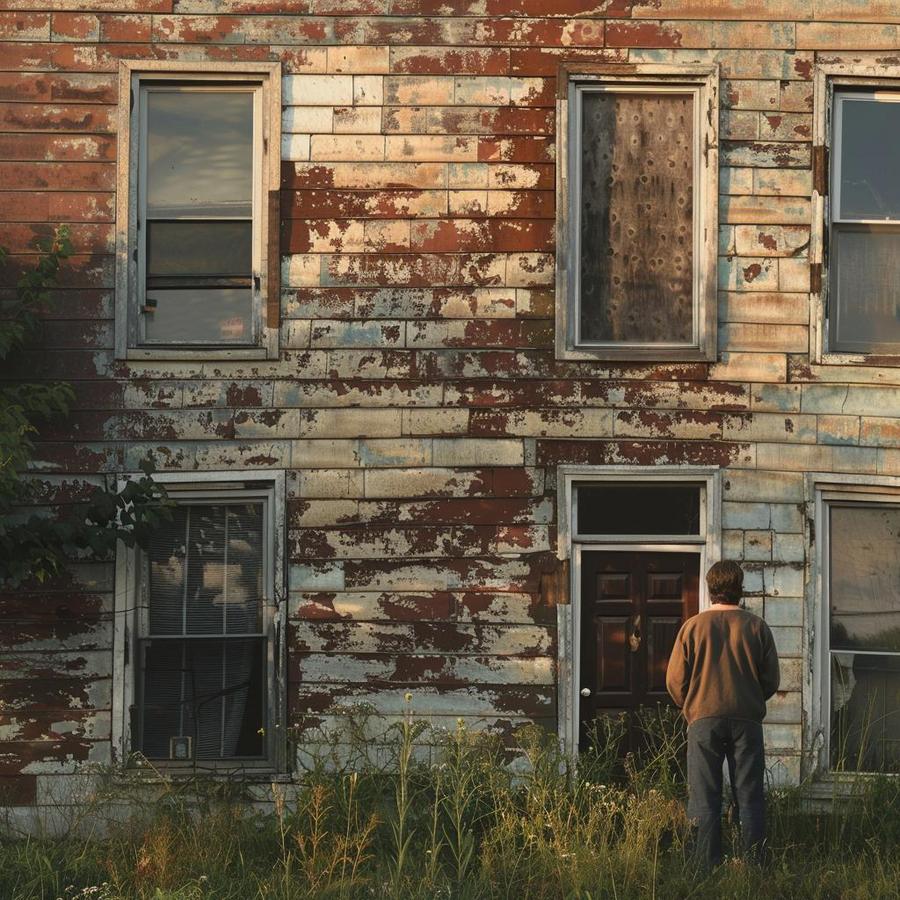Thinking about selling your house as-is? It might seem easy, but how much will you lose? This guide dives deep into what "as-is" really means and how it affects your wallet. We'll explore everything from legal must-dos to hidden costs, and even how to cut losses. Perfect for those wanting to skip the fix-up fuss and sell fast. Let's unlock the secrets to smart, as-is sales together.
TL;DR:
- Selling a house as-is means not doing repairs before sale, potentially saving time and money but likely resulting in fewer offers and lower sale prices.
- Legal requirements vary by state but generally mandate disclosing significant issues to buyers.
- Market conditions influence sale outcomes, with better results in seller's markets despite homes needing work.
- Costs like agent commissions, closing costs, and possible lower offers due to repairs can reduce profit.
- Alternatives include iBuying for a fast sale or traditional sale with repairs for potentially higher returns.
- Consultation with a local real estate expert is crucial for navigating the process, setting a fair price, and understanding legal obligations.

What Does 'Selling a House As-Is' Actually Mean?
Understanding the As-Is Selling Process
When you sell your house as-is, you don't fix it up first. You don't pay for any repairs needed. This saves you both time and money, but there's a catch. You might get fewer people wanting to buy it, and they might offer less money.
For instance, think about a fixer-upper home sold in 2022. The price was usually around $225,000. Now, compare it to homes ready for move-in. They sold for about 45% more. A big difference, right?
Legal Requirements for Disclosure in As-Is Sales
In selling as-is, you must still tell buyers about big problems with the house. This could be anything from leaks to a weak foundation. Why? Well, it's the law in many places. Each state has its own rules. Some states need you to fill out special reports that list these issues.
Not telling buyers about these problems could get you into legal trouble. It's like selling a car that you know has a bad engine without telling the buyer. Fairness matters in selling too.
I always advise doing a quick check of your home, seeing what might turn buyers off, and being upfront about these issues. Yes, your sale price might be lower, but your honesty will make the process smoother and quicker. Plus, you avoid the risk of post-sale problems, which no one wants.
Why Would You Choose to Sell Your House As-Is?
Weighing the Pros and Cons
When you sell a house as-is, you do not fix it up first. This can save you time and cash. Yet, selling as-is might get you fewer offers and less money. The choice pits saving effort against potential gains.
For instance, in 2022, fixer-upper homes sold for about $225,000. Homes ready to live in fetched 45% more. This shows the money you might lose but also the hassle you avoid.
Cases Where Selling As-Is Makes Sense
Sometimes, selling as-is fits better due to urgent needs. If you can't afford repairs or you must sell fast, this method helps. It can be wise when facing big repair jobs like roof fix or foundation issues. Here, the cost of fixing might not match the home's increase in value.
Also, consider your home's location and condition. In areas like some parts of Cleveland, where market prices are low, the return on investment for extensive repairs might not be worth it.
Always talk to a local real estate agent. They can offer advice on whether to sell as-is or fix up. They know your market and what buyers expect.
Remember, every state has different laws about what you must tell buyers about your home. In some places, you need to share a lot about the home's condition. In others, it’s less strict.
Selling as-is needs good marketing too. Show all flaws honestly but also highlight the potential of your home. This attracts buyers who are ready for a project or looking for a deal.
Finally, setting a realistic price is crucial. It should reflect the current state of your home. Price too high, and you won’t sell. Too low, and you lose money.
Related Links:
–How To Sell A Fixer Upper House Fast: Simple Guide
–Can You Sell a House with Mold? Know How

How Does the Condition of Your Home Affect Its As-Is Sale?
The Impact of Major Repairs on Sale Price
Selling a house with big problems means less money for you. If you have issues like a bad foundation or mold, these scare buyers away or they offer less. For example, selling a house as is with foundation problems can lower offers since buyers think about the high cost of fixing it. Even worse, selling a house as is in need of repairs like new roofs or old plumbing can drop your home's value.
Big repairs change the sale price a lot. Buyers often want a deal to cover repair costs themselves. This means they might pay you much less than if the house was ready to move in.
Minor vs. Major Issues: What's the Difference?
There's a big difference between minor and major issues. Minor problems like peeling paint are easy to fix. But major issues like structural problems can cost a lot to repair. These big problems need more work and money, so they lower your house's selling price more than small issues.
When selling, you should know which issues are big or small. This helps you set a fair price, and it helps buyers know what they're getting into. Always show the truth about your home's condition. This builds trust and can make the sale smoother.
Overall, the state of your home plays a big part in how much you get when you sell as-is. You might lose some money on big issues, but being honest and smart about pricing can help you make the best of it. Always think about getting a home inspection and talking to a local real estate expert. They can give you great advice on selling your home as-is.
How Much Could You Lose by Selling Your House As-Is?
Understanding Potential Losses
Selling your house as-is might sound simple, but it's important to know what this choice means. You skip out on making any updates or fixes before selling, and don't cover buyer's repair costs. This saves you cash and cuts down on time spent getting the place ready. But it might mean fewer people want to buy your house, which can lead to making less money in the sale.
Homes needing big fixes sold for about $225,000 on average in 2022. Homes ready to live in fetched about 45% more money. When selling as-is, you must show all the flaws to potential buyers, and get advice from a local real estate expert. Knowing what might need fixing and how much it could cost helps. Setting a fair price considering these facts is key.
Some choose to fix up their houses before selling to grab a better price. Others may deal with a buyer to handle some costs, or sell directly to companies that buy homes as-is for quick cash.
Each state has its own rules about selling as-is. Some require you to tell buyers about any big issues with the property before they buy, while others let buyers take the risk without much seller disclosure.
Talking with a real estate pro is crucial to steer your sale in the right direction. They can guide you on pricing it right, marketing honestly, and navigating legal needs based on where you live. Choose wisely to either save on immediate costs or invest a bit for potentially greater return. Deciding if selling as-is is right for you depends on these dynamics and more.

What Are The Hidden Costs of Selling a House As-Is?
Common Fees and Costs Involved
Selling a house as-is means no fixes before selling. You also save on not doing repairs. Yet, some costs still find a way to your bill. Let's break these down.
First, think about agent commissions. Yes, even as-is sales need an agent. They take about six percent of the sale. I know, it bites a chunk off your earnings.
Next is the closing cost. These cover taxes, title searches, and more. Expect to lose two to four percent of the sale price here.
Don't forget the buyer might want a price cut. They know they have repairs ahead, after all. So, they might pay you less than the market rate.
Now, lower sale price means less money in your pocket. It's simple math.
You also might deal with longer sale times. Fewer buyers like "as-is" homes. Less demand can mean waiting longer to sell.
Comparing Costs: As-Is vs. Fixed-Up Sales
Ok, selling as-is can be cheaper than full repairs. But consider the possible money you leave on the table.
A fixed-up home usually pulls in more buyers and better offers. Yes, you shell out upfront for repairs. Yet, the return on these fixes often covers their cost and then some.
For big ticket issues like foundation or mold, costs can be high. Yet, fixing these can shoot your home’s value up by much more. It's a bet, but often a good one if you play smart.
Also, your location plays a part. Homes in cities like Austin or San Francisco fly off the market in any state.
Always weigh these pros and cons. Or, chat with a real estate whiz who knows your local scene. They can guide you on what's best in your area.
How to Minimize Losses When Selling a House As-Is?
Essential Steps in Preparation
To sell your house as-is, first know every flaw it has. You must show all these issues to buyers. Get a home inspector to check your place. They find problems you might miss. This step is key to avoid later trouble with buyers. Listing the flaws can seem bad, but it builds trust. Buyers know what they are getting into.
Negotiation Strategies for As-Is Sales
When you sell as-is, set a fair price. Know the local sale prices for fixer-uppers. In 2022, such homes went for about $225,000. Remember, others might sell for much more. Be ready to talk about the price with buyers. Some might want you to fix things first. Stick to your plan of selling as-is but consider small compromises if needed. Use this guide to tips for selling your house as-is for more help.
Use these steps to help you sell smart and avoid big losses. Talk to a local real estate pro too. They give great advice tailored to your town and home.

Can You Sell a House As-Is Without an Inspection?
Yes, you can sell a house as-is without an inspection. This means you don't fix the home before selling it. You also won't pay for any repairs for the buyer. Selling this way saves time and money on repairs. But, you might get fewer offers and make less money. Last year, fixer-upper homes sold for about $225,000. Homes ready to live in sold for 45% more.
When you sell a house as-is, show all the flaws. Get advice from a local real estate agent. It's a good idea to do a home inspection before listing it. This helps you know what's wrong with the house. Telling buyers about these problems is a must in many places.
You can choose to fix the house yourself, pay for some repairs for the buyer, or sell to an iBuyer. The right choice depends on how much repairs cost. It also depends on how much more a ready house is worth than an as-is one. Talk to a real estate agent to get help with your decision. They know a lot about selling houses as-is. They can guide you through the process, legal needs, and how to set a good price.
For more insights on selling your home without making repairs, visit this helpful guide on selling a house as-is.
How Do Market Conditions Affect As-Is Home Sales?
Selling As-Is During Buyer’s vs. Seller’s Markets
Selling a house as is in a buyer's market can be tough. You might get less money for your home. This happens because buyers have more homes to choose from. They might not pick a home that needs work.
In a seller's market, it’s different. Your as-is home might sell for more money. Buyers are ready to buy any home they can find. So, they might pay more for an as-is home, even one that needs repairs.
How Current Trends Impact As-Is Sales Prices
Market trends really change how much you can get for your as-is home. Let's say a lot of homes are selling fast in your area. You might get a good price for your home, even if it needs fixing. But, if homes are not selling well, and there are many on the market, you might have to accept less money.
It's smart to know about the area you are selling in. Are you in a spot where homes sell fast? Or do homes sit on the market here? This info helps you set the right price for your as-is home.
Also, think about the average price for homes that need work versus those ready to move in. This can help you see what buyers in your area are willing to pay.
Selling as is can save you from repair costs. Yet, setting a price that's too high or too low could make it hard to sell your home. Talk to a local real estate professional.They can offer advice tailored to your neighborhood. This step is key to making a good sale. Check out more tips on how to sell your house fast.
What Are the Alternatives to Selling Your House As-Is?
iBuying and Instant Cash Offers
iBuying lets you sell your house fast. Companies give you a cash offer online. You give them basic house info, they review it and offer you cash. This way, you skip repairs, staging, and showings. A link to more on iBuying gives deeper insights. It's fast, but you might get less money than selling the old way.
Partnering with a Realtor for a Traditional Sale
Working with a realtor can help you a lot. They know all about where you live and the market. They can tell you if fixing the house could get you more money. If it does, they can help you find people to fix it up. A realtor can also help set a good price and find buyers fast.
Selling as is sounds easy and often is. But check other ways to sell. Fixing your house or partnering with a realtor might get you more cash. Before you choose, look at all the ways you can sell. Think about how much cash you need, how fast you need it, and what each way costs.
FAQs on Selling a House As-Is
Top Questions from Sellers
When you sell a house as-is, you don't fix it up first. You save time and money, but maybe get less cash from the sale. It's quick but you might not get as much interest or offers. In 2022, fixer-upper homes cost about $225,000 on average. Homes ready to move into cost 45% more.
To sell as-is, show all flaws clearly and get help from a local estate agent. Always tell buyers about any big issues the house has. Get repair costs before you set your selling price. You might also think about fixing some things yourself, helping with repair costs, or selling to an iBuyer.
Deciding to sell as-is can depend on how much repairs would cost you versus the price gap with move-in ready homes. It's smart to chat with a real estate agent for advice. Laws about selling as-is can vary by state. Some states need you to tell buyers lots, others less so.
Navigating Common Concerns and Challenges
Selling as-is can seem tough. You worry about getting less money and fewer offers. Remember, the key is good pricing and honest info. Show the real state of your home and list it at a fair price. Think about your local market too. What works in one place might not in another. Ask an agent from your area. They know what local buyers want.
We covered a lot about selling your house as-is. From understanding the process and legal must-dos to weighing options and knowing your home's condition. We also looked at potential losses, hidden costs, and how to cut them. Plus, we talked about selling without an inspection and how market trends play a role. There are other ways to sell, but if quick and easy is your goal, going "as-is" might be right for you. Always think about what makes sense for your situation.











